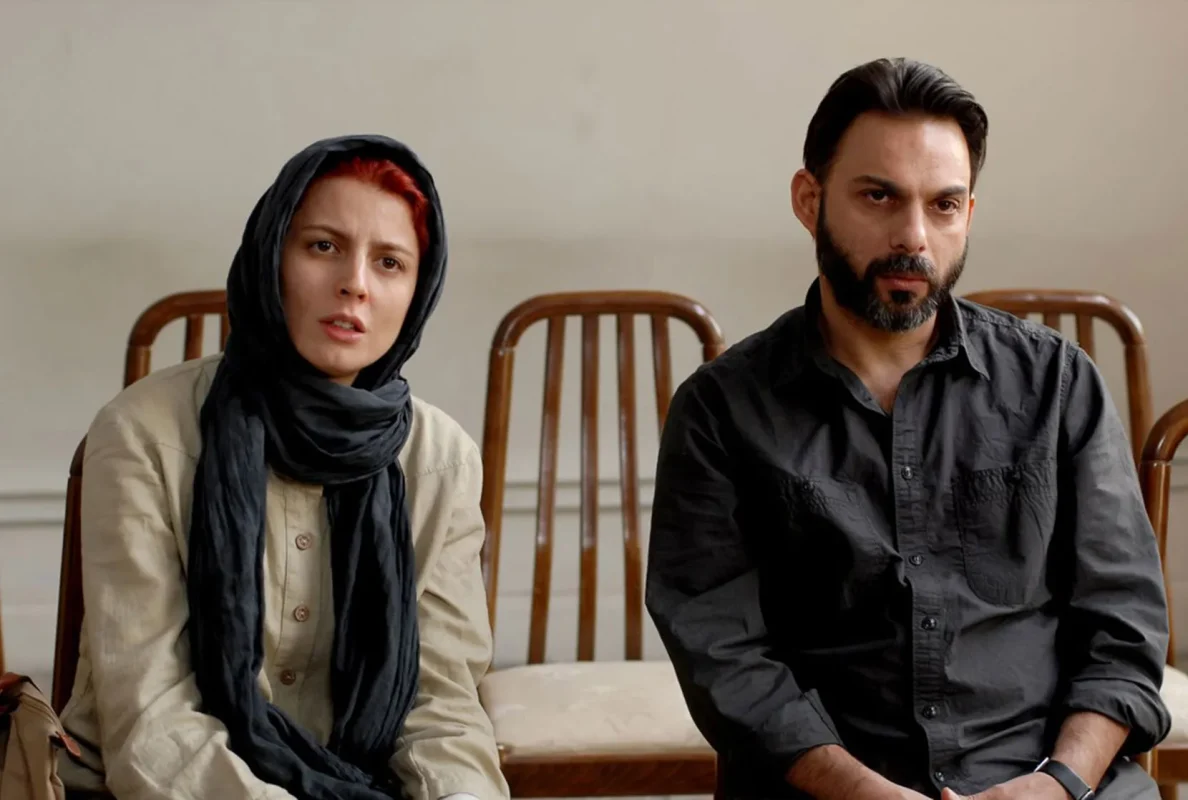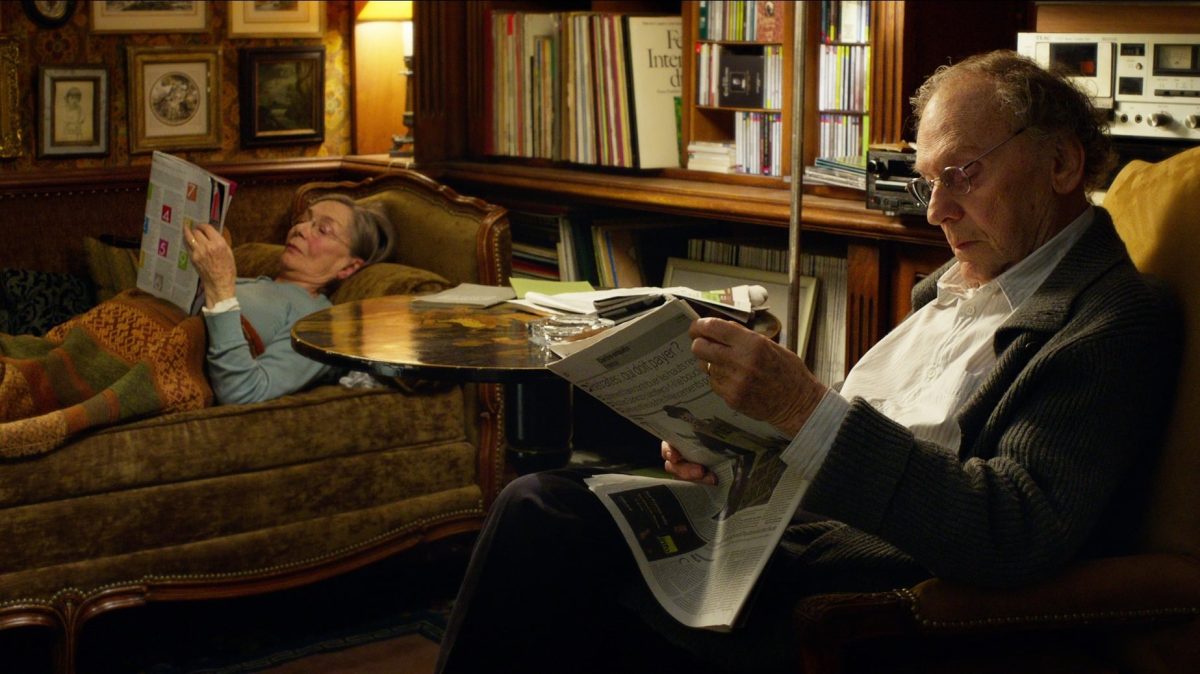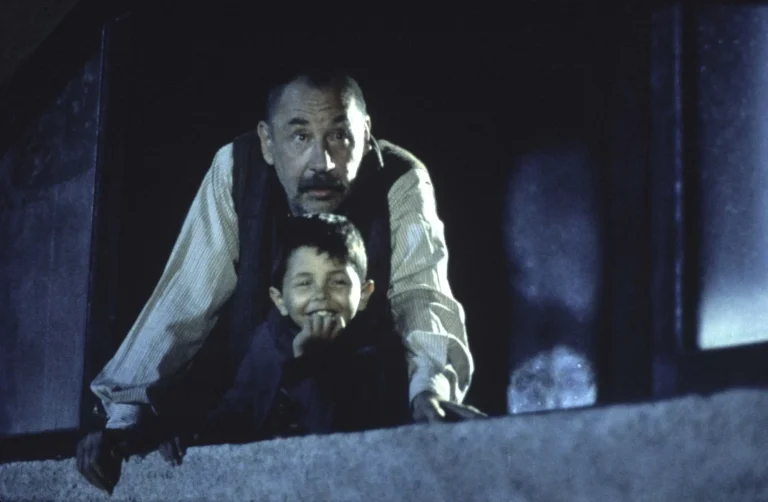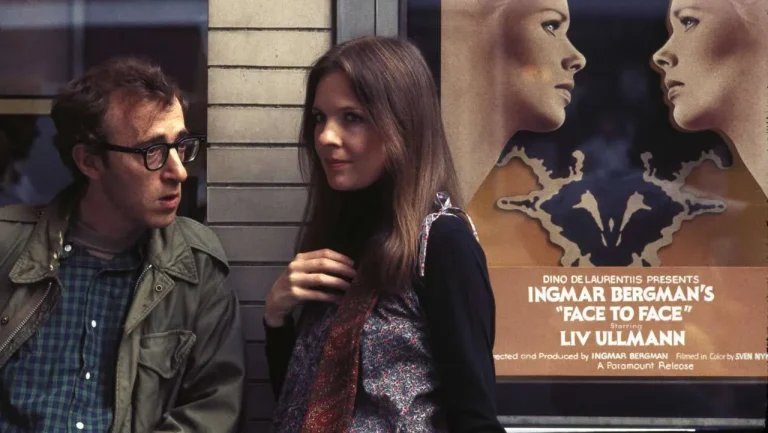The Academy Award for Best International Feature is, unquestionably, one of the Oscars’ most controversial categories, touted by many as a token ghetto for films deemed to be outsiders, offered as a means to throw them a bone and subsequently ignore them in other major categories. (The longstanding naming of the category as “Best Foreign Language Film,” a name that was only changed some six years ago, is indicative of this forced sense of entrenched distancing.) Further controversy comes from the rule that only one film can be submitted per country, and government-appointed selection committees often mean subversive films will be shunned despite their widely agreed-upon worth.
The category is also the most interesting category AMPAS has on the table, if only because this small chance to highlight international cinema inherently means that the most varied and compelling films in contention will be appearing there, if nowhere else. In any case, the winners in this Oscar category have certainly stood as adding a much-needed shot of life to the growing list of sometimes stale Academy Award-winning films, even beyond the realm of cheap exoticism; with the most interesting selection of films to choose from, it only seemed right to praise the absolute best of the best from the new millennium.
Why limit ourselves to 21st-century wins? Mostly, it’s a factor of acknowledging how the Academy’s tastes have shifted and diversified with the increasingly international composition of their voting body. With each passing year, the institution invites more filmmakers from more corners of the globe, and with this greater diversity, one hopes the International Feature category will soon grow beyond the point of token recognition. As it stands, with more and more of these films breaking through to major categories, it looks as though things may finally be headed in the right direction, and these films stand as the greatest testament to that hope.
10. Ida (2014, Poland)
In reference to Paweł Pawlikowski and the Academy Awards, two distinct memories are likely to come to mind. The first is the director’s complete shock at a Best Director nomination for “Cold War,” and the second comes from his acceptance speech for the film that preceded it, “Ida.” In giving a lengthy and impassioned speech, Pawlikowski had to be played off by the orchestra twice to finally get him off the stage. It’s an amusing bit of Oscar history that feels almost entirely at odds with the film that made this moment possible.
The story of a young nun in postwar Poland who embarks on a journey to uncover her familial ties, “Ida” takes all of 82 brisk minutes to unload decades of European shame and guilt upon the shoulders of its subject and its audience, with Pawlikowski’s masterful use of negative space consuming the upper half of the frame in nearly every shot. Łukasz Żal and Ryszard Lenczewski’s gorgeous monochrome photography (also Oscar-nominated) lends a hauntingly cavernous mood to Pawlikowski’s effortless humanity, where a single glance across a bar table is all it takes to set forth years’ worth of questioning of one’s entire set of life choices.
Check Out: Pawel Pawlikowski’s Top 10 Films of All Time
9. The Great Beauty (2013, Italy)
Leading up to the release of “The Great Beauty,” Paolo Sorrentino had been steadily building his reputation as an operatic ambassador of Italian opulence the likes of which we haven’t seen since Federico Fellini (a name you’d be reading quite a bit were this list extended to the previous century). With his 2013 feature, though, Sorrentino had inarguably reached the peak of his baroque maximalism, channeling Fellini’s most revered masterpiece (again, put a pin in that) for a feature whose untraceable interiority manifested in an existentialist prose punctuated by flamingoes as far as the eye could see.
Teaming up once again with Toni Servillo—his own personal Mastroianni—“The Great Beauty” finds Sorrentino reveling in an authorly sense of melancholy contemplation that sees the emptiness of time everywhere that it sees the allure of the ephemeral—and, in Rome’s vast and enduring architecture, every sentiment in between. It may not be the most novel artistic expression to question the worth of the man inside the flashy suits basking beneath champagne fountains, but Sorrentino sees no reason to deny the honesty of his own exaggerated instincts hiding behind those darkened lenses that rest on such a man’s desensitized face.
8. Another Round (2020, Denmark)
In the absolute dirge of 2020 that we’d all rather forget, it would be easy to assume that whichever film won this Oscar category (or any other, really) was benefiting from a lowered bar of entry in a year when everybody who could was pushing their films back into the next year. Thomas Vinterberg, however, could never be underestimated in any year, and “Another Round” constituted the Dane’s long-awaited promotion to the big times after flirting with a previous win for his even better tragedy “The Hunt.”
What makes “Another Round” so worthwhile on its own terms is Vinterberg’s ability and willingness to tackle subject matter not only unique but uniquely amoral. In following a group of middle-aged men who decide to spend all their time steadily drunk (led by Vinterberg’s incomparable muse Mads Mikkelsen), the film could so readily have dipped into didactic M.A.A.D. spokesmanship.
Instead, “Another Round” grapples with the distinction of Danish drinking culture with a lightness of touch that never loses grasp of the very real consequences of its personally perilous endeavor. That Vinterberg manages to reach these depths while simultaneously ending on one of the most memorably infectious (and wholly earned) finales of the 2020s is a testament to a vision every bit as malleable as it needs to be to fit a premise most filmmakers would never even approach.
Must Check Out: 10 Best Movies That End in Dance
7. Crouching Tiger, Hidden Dragon (2000, Taiwan)
Seeing as how so many of the entries on this list are record-setters in one way or another, it bears mentioning that “Crouching Tiger, Hidden Dragon” was itself a transcendent phenomenon in Hollywood’s embrace of international cinema, as it set the record for most nominations for a foreign film at an even 10—a record that wouldn’t be tied until another masterpiece 18 years later, and not surpassed until another film six years after that which is better left forgotten.
Viewing Ang Lee’s wuxia opus, it’s more than understandable that a technical marvel such as this—lovingly recreating the physical improbability of its genre with a precise eye for swordplay—would sweep the technical guilds off their feet.
Still, that “Crouching Tiger, Hidden Dragon” managed to be so widely accepted by the Academy—and more or less kicked off the short martial arts revival of the early aughts—is somewhat surprising. Not because of the film’s quality, but because of Lee’s unrelenting sincerity, the chameleonic auteur lends a disarming humanity to its vast, almost mythic love story, giving the material the seismic impact of a legend told and retold through the ages. Lee’s sword is his camera, and it’s a weapon he wields with the greatest care.
6. Roma (2018, Mexico)
Not every directorial self-evaluation is a resplendent display of hedonism, but that doesn’t mean that Alfonso Cuarón’s own vision of his childhood in Mexico is anything less than a pristine miracle of awe-inspiring craft. Critiquing his own privilege by relegating his own stand-in to the background, “Roma” sees Cuarón empathizing with a figure of his formative years who likely never received this much attention from a pre-pubescent child who only saw her as a nanny, nor from the adults who saw her as an attaché to the household and little more.
A true wonder of cinematography and production design well beyond anything one would expect from a household drama from the perspective of a quietly marginalized domestic helper, “Roma” expresses great compassion in its capacity to allow those towering production achievements to center the life of a woman never afforded that level of outside care beyond the beaming light of the projector.
Yalitza Aparicio carries the film with a mousy poise that ties Cuarón’s efforts together by offering a sympathetic conduit for a film that risks easy alienation through its apparent distance. But every inch of that distant vision is curated with years of care and decades of memory, and it shows in each and every crisp frame.
Read: Why Alfonso Cuarón’s ROMA Is Essential for Young Filmmakers
5. The Zone of Interest (2023, United Kingdom)
The United Kingdom, as may be expected, hasn’t had much luck in a field meant expressly for films made outside the English language, to the point where its (so far) only success in this arena comes in the form of a film made and set in Poland. None of that really matters, though, as Jonathan Glazer’s “The Zone of Interest” finds its haunting, evergreen relevance in the reality that its history is one that continues to echo across every corner of the apathetic globe. In the director’s own words upon accepting his Oscar, “All our choices were made to reflect and confront us in the present. Not to say ‘Look what they did then,’ rather ‘Look what we do now.’”
Exerting as much clinical detachment as any film can while still bearing the imprint of human choice, “The Zone of Interest” delivers a chillingly clear-eyed examination of the bone-deep banality behind humanity’s darkest atrocities—made all the more unsettling by how effortless such deliberate ignorance remains even today. Glazer’s work, therefore, proves a crucial argument for the power of true observation and the resulting acknowledgment that some truths are most terrifying when left untouched.
4. Drive My Car (2021, Japan)
In retrospect, the union of Ryūsuke Hamaguchi and Haruki Murakami was probably too perfect to ever fall to the abyss of “what if?” scenarios. The eternally perceptive Japanese filmmaker’s look into one of the eternally self-evaluating Japanese author’s minor works results in an absolutely sprawling meditation on anything and everything that defines living in the modern world.
In all, communication and distance are the name of the game for “Drive My Car,” and Hamaguchi’s penchant for verbal breakdown (aided here by cowriter Takamasa Oe) results in a thoughtful unpacking of human fallibility that creeps up on you with startling evenness across its three-hour runtime.
Perhaps the breeziest such runtime ever put to film, “Drive My Car” buries itself in your brain with an almost casual intellectual vigor, and latches itself onto your soul with an urgent search for an answer to the emptiness of all our words. How Hamaguchi managed to surge towards the Academy’s radar is a total miracle in and of itself (Nuri Bilge Ceylan, when?), particularly in his refusal to compromise on the very sort of cerebral vitality that has made him such an essential contributor to the modern landscape of world cinema. We should just be grateful and leave it at that.
While You’re Here: The 50 Best Films of 2021
3. A Separation (2011, Iran)
Sometimes, all it really takes is people sitting in a room. Not to suggest that Asghar Farhadi’s name-making masterpiece “A Separation” is any kind of strict chamberpiece betrayed by its title, but rather that the filmmaker has always had an inclination towards taking the smallest of scenarios and spinning them into the greatest of personal calamities. Of course, under any circumstances, a familial separation is the greatest of personal calamities for the young souls stuck in the middle, but Farhadi’s decision to complicate matters—as he always does—is what gives this film its howling anxiety.
Utilizing its titular situation as a means to show where unity may be found in the most glaring instances of self-preservation, “A Separation” prods at the injustices of the Iranian marital courts as an avenue for dubious leverage, and prods Iran’s social mores to see where that leverage can spiral into disasters felt on the smallest of scales. The size of the reverberation, however, has no impact on its staying power, and Farhadi illustrates this beautifully all the way up to his contemplatively inconclusive final shot. Sometimes, all it really takes is people sitting in a room, but people sitting just outside a room may be enough to leave a permanent mark on your disillusioned spirit.
2. Amour (2012, Austria)
Keeping in mind all of this talk of films that latch themselves onto your soul and squeeze until there remains nothing but a fine powder, few films have achieved this crushing sense of endurability quite as thoroughly as Michael Haneke’s “Amour.”
That the Academy came within 20 feet of any Haneke film is a reality that defies all understanding, but this one in particular strikes as even more confusing given its particular register of disturbing material that surpasses even the director’s bloodiest and most purposely alienating works. Why “Amour” deserves such distinction, however (and why the Academy went for it), is because the horrors it depicts are those that come with loving unconditionally, despite the withering that awaits us all.
In a filmography defined by such viscerally disturbing works as “Funny Games” and “Benny’s Video,” “Amour” disturbs solely by virtue of Haneke’s signature clinical camera capturing a relationship at its realest, in a period that could only ever be its most trying. The film portrays aging as anything but a fairy tale, but Haneke’s uncharacteristic sympathy for his subjects makes that odyssey one whose worth is questioned only insofar as one is willing to ponder their willingness to fully live up to those immortal words on the altar: “in sickness and in health, till death do us part.”
Read More: All Michael Haneke Movies, Ranked
1. Parasite (2019, South Korea)
I mean… was there ever any doubt? Aside from the fact that “Parasite” made history as the first ever non-English film to win the Oscars’ top prize, Bong Joon-ho’s singular masterpiece has been praised as such by pretty much everyone with a mouth and/or a keyboard since the latter half of 2019. The 21st century’s most succinct example of every craft firing on all cylinders, “Parasite” constitutes one of the most objectively perfect pieces of filmmaking ever committed to the medium, disparaged only by the most ignorant of subtitle-weary xenophobes or the most fervent of cinematic contrarians.
A singular achievement of class commentary, class comedy, and class anxiety, “Parasite” finds its brilliance in its wide-reaching diagnosis of the malignancy of capitalism, as Bong expertly navigates through a prickly scenario that risks turning all of his subjects into unwatchable assholes.
Instead, the film miraculously turns them all into endlessly watchable assholes, fuelled by circumstance and ambition on one side and ignorance and privilege on the other, all coming together for the most invigorating instance of what a film can do and be in an age peppered with the constant fear that there are no new stories to tell. As it turns out, there’s plenty more to be said if you’re willing to surmount that two-inch barrier called subtitles.


















